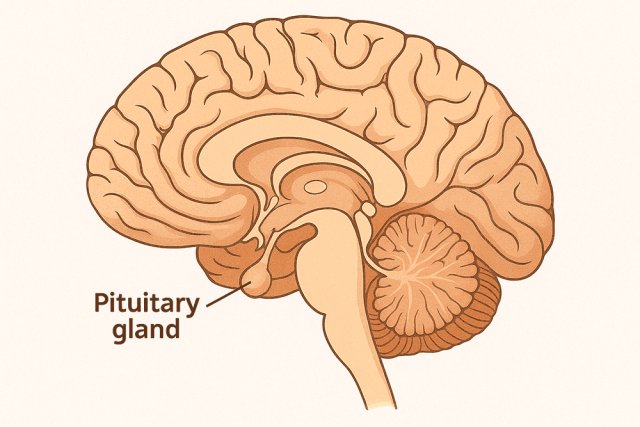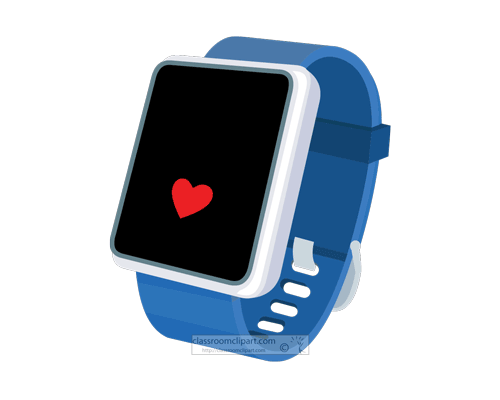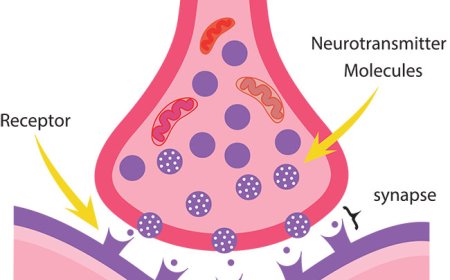Healthy Endocrine System for Kids – How to Keep Your Hormone System Balanced
Learn how to care for your endocrine system for kids. Discover habits for balanced hormones, including good nutrition, regular sleep, stress tips, and why it helps your body grow and stay healthy.

🥗 Keeping the Endocrine System Healthy
🧠 Introduction: Helping Your Body’s Hormones Work Their Best
Your endocrine system works 24/7 to help your body grow, feel emotions, handle stress, and stay in balance. But like any important system, it needs care. The choices you make every day—what you eat, how much you sleep, how active you are—can strengthen or weaken your hormones.
In this article, we’ll explore the daily habits that keep your endocrine system working smoothly. You'll learn about:
🥦 Healthy foods for hormone balance
😴 The role of sleep
🏃♀️ How physical activity supports glands
☣️ Toxins to avoid
😌 Managing stress for hormone harmony
Let’s find out how to keep those chemical messengers in top shape!
🥗 Eat Smart: Nutrition for Hormone Health
What you put on your plate affects your hormones more than you may think. Glands like the thyroid, pancreas, and adrenal glands rely on the right nutrients to produce hormones properly.
Best Foods for Endocrine Health:
- Leafy greens (like spinach and kale): Provide magnesium and iron
- Whole grains (brown rice, oats): Help with blood sugar control
- Healthy fats (avocados, nuts, olive oil): Support hormone production
- Lean proteins (chicken, beans, eggs): Build tissues and maintain energy
- Fruits (berries, oranges): Offer antioxidants and vitamins
What to Limit:
- Added sugars: Can confuse insulin and affect energy
- Highly processed foods: May contain harmful additives
- Caffeine and energy drinks: Can spike stress hormones like cortisol
- Soda and sugary drinks: Can lead to weight gain and poor hormone balance
Eating a variety of whole, fresh foods keeps your endocrine system energized and balanced.
😴 Sleep: Recharge Time for Hormones
Sleep isn’t just for rest—it’s when your body repairs, grows, and produces hormones. While you sleep, the pituitary gland releases growth hormone, and the body resets stress hormones like cortisol.
Why Sleep Matters:
- Helps keep metabolism steady
- Balances mood and emotional hormones
- Supports growth and immune function
- Allows time for cells to repair
Sleep Tips:
- Aim for 8–10 hours of sleep per night (especially for teens!)
- Turn off screens 30–60 minutes before bed
- Keep a regular bedtime and wake-up time—even on weekends
- Create a calm, cool, and dark sleep environment
Skipping sleep can throw your hormones off track and make you feel grumpy, tired, or anxious.
🏃♀️ Move Your Body: Exercise and Endocrine Health
Physical activity is like a gentle switch that helps your body use hormones better. It supports insulin, boosts mood chemicals, and reduces stress hormones.
Benefits of Exercise:
- Lowers stress by reducing cortisol
- Improves insulin sensitivity (helps blood sugar)
- Boosts mood with endorphins and serotonin
- Helps maintain healthy weight, which supports hormone levels
Easy Ways to Stay Active:
- Go for a 30-minute walk, jog, or bike ride
- Try dancing, swimming, or playing a sport
- Stretch or do yoga to relax your body
- Take movement breaks between schoolwork
Even short bursts of movement can make a big difference!
☠️ Avoiding Toxins: Protecting Your Hormone System
Some chemicals in our environment can act like fake hormones and confuse your endocrine system. These are called endocrine disruptors.
Common Hormone-Disrupting Chemicals:
- BPA: Found in plastic bottles, canned food linings
- Phthalates: In some soaps, shampoos, and plastics
- Pesticides: Sprayed on non-organic fruits and veggies
- Cigarettes and vape products: Harm glands and reduce hormone production
- Fast food packaging: May contain hormone-interfering chemicals
How to Avoid Them:
- Use a reusable water bottle (stainless steel or BPA-free plastic)
- Choose natural or fragrance-free personal care items
- Wash fruits and vegetables before eating
- Avoid smoking or vaping—these directly harm your glands
- Limit takeout foods wrapped in plastic or foil
Protecting your endocrine system helps keep your body running smoothly for life.
😌 Keep Stress in Check
Stress is a normal part of life, but too much stress for too long can flood your body with cortisol, which can mess up sleep, mood, appetite, and even immune health.
What Happens When You’re Stressed Too Often:
- High cortisol = low energy and poor focus
- May cause mood swings or anxiety
- Affects digestion and sleep
- Can lead to hormone imbalance
Healthy Ways to Handle Stress:
- Take deep breaths or do short meditations
- Listen to calming music
- Talk to someone about how you feel
- Spend time in nature or with pets
- Practice a hobby like drawing or playing an instrument
Learning to manage stress helps your entire endocrine system work more calmly and effectively.
🧠 Vocabulary List
Endocrine system – The body system that uses hormones to send messages
Hormones – Chemicals that tell organs what to do
Pituitary gland – The “master gland” that controls other hormone-producing glands
Cortisol – A hormone made during stress
Insulin – Hormone that helps control blood sugar
Thyroid – Gland in the neck that controls metabolism
Endocrine disruptors – Chemicals that interfere with hormone function
Metabolism – The way your body turns food into energy
Phthalates – Chemicals in plastic and cosmetics that can affect hormones
BPA – A harmful chemical often found in plastics
⭐ Kid-Friendly Summary
Your endocrine system works best when you take care of your whole body. That means eating healthy foods, getting enough sleep, staying active, and avoiding harmful chemicals like BPA and smoke. Your glands and hormones need support to help you grow, stay energized, and feel good every day. You can even lower stress by doing things you enjoy, like walking outside or listening to music. Healthy habits = happy hormones!
🤯 Fun and Interesting Facts
Your hormones follow a 24-hour cycle called your circadian rhythm.
Exercising just 20 minutes can reduce stress hormones for the whole day.
Endocrine disruptors are found in things like receipts and fast food wrappers!
Your body produces more growth hormone during sleep than when you're awake.
Some plants (like soybeans) have natural plant hormones called phytoestrogens.
❓ Interactive Quiz: Test Your Endocrine Health Knowledge!
1. Which gland releases growth hormone during sleep?
A. Thyroid
B. Pituitary
C. Pancreas
D. Adrenal
2. What should you limit to support healthy hormones?
A. Fruits
B. Whole grains
C. Sugary drinks
D. Leafy greens
3. What does cortisol help your body do?
A. Digest food
B. Handle stress
C. Grow bones
D. Sleep better
4. Which of the following is an endocrine disruptor?
A. Fresh fruits
B. BPA
C. Water
D. Calcium
5. What is one way to reduce stress?
A. Eat more sugar
B. Stay up late
C. Go for a walk




















































